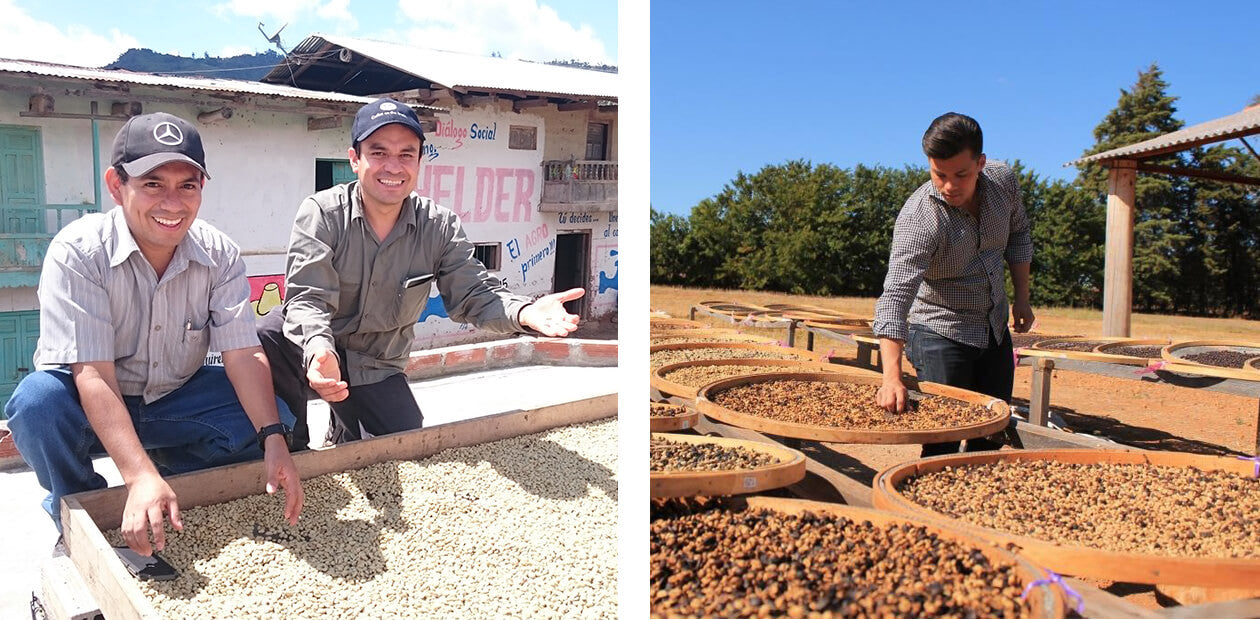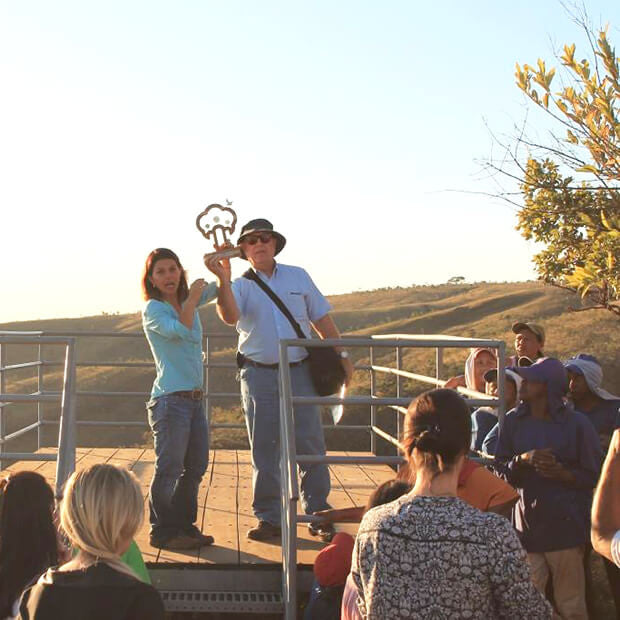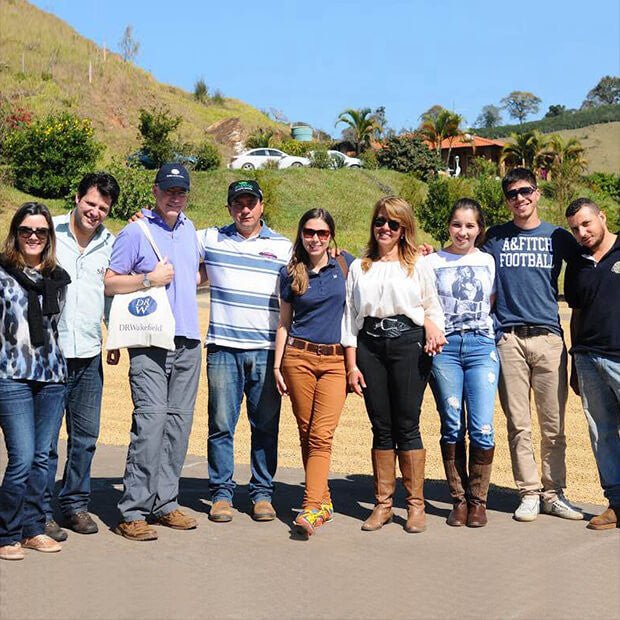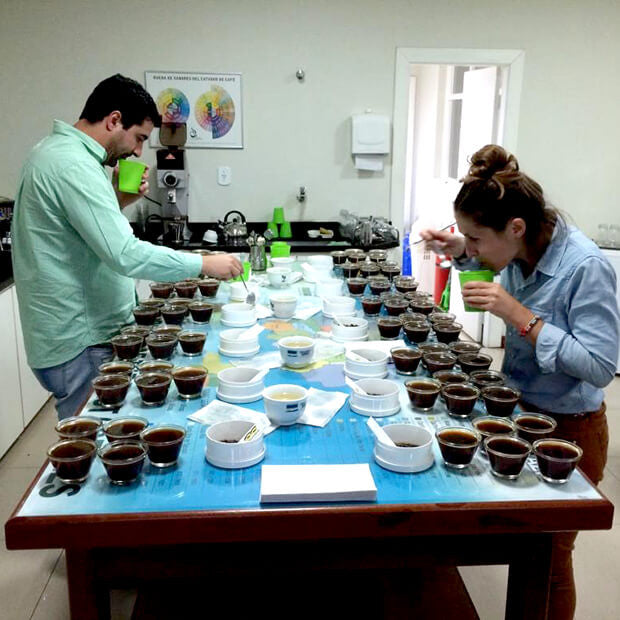


Breaking news – Daterra entered a competition to find the most sustainable farm in all Brazil - they won ! Luis, Isabela and Leon presented the trophy to the whole team in the farm and acknowledged that it was a team effort. see photo below.
Travelling so far to only see 1 farm is not making the most of the opportunity, so we managed to squeeze in a few extra days visiting 6 other farms in the Minas Gerais region.
It is great to experience the passion and increased knowledge that is being shown at the farms. As ever the warmth of hospitality is second to none. Some of the farms visited were Fairtrade, but not Fairtrade as we know it – the farms do not really need the premiums, they are privately owned, but with the manner in which they are operated, they comply with the Fairtrade standards. When asked about the premium, it is left in the Cooperative to invest in an appropriate manner amongst their members who can benefit from the premium – it’s kind of like a philanthropic gesture by the owners to help the surrounding farms develop. But because these farms are privately owned, they have the quality controls in place and are processing various varietals and processes as required which are cupping above 84 points.


Depending upon the area and their micro climate the harvest was about 60-70% complete, which meant that we could taste the early harvest – still a bit fresh, but gave us an idea that the quality will be really good even though the bean maybe a little smaller.You always learn something new – natural floaters ! it’s not what you are thinking - it’s the new grade ! Even cupped better than Lewak. Joking apart, floaters have always been rejects, but there are different types of floaters and some of them are good, which are also know in Daterra as “pulped raisin”
It is surprising to see how much of a slope a mechanical harvester can cope with – upto 30 degrees now ! and we noted that a number of farms are changing their plantings (rows) to convert to machine picking, due to cost and lack of manual labour. The labour conditions for manual workers is also becoming tougher, with the farm owners needing to see licences from the “mechanical Hand pickers” – it is like a brush cutter, but with vibrating fingers as opposed to a blade – these guys work in pairs, but need to have protective boots, gloves, face/hear wear as well as the licence to prove they are safe to use the equipment.